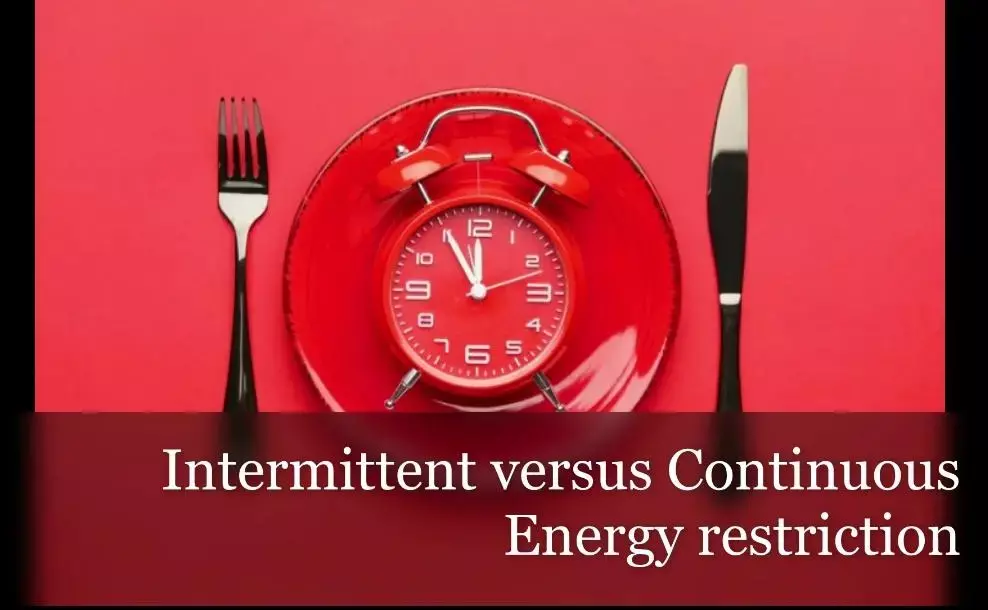- Home
- Medical news & Guidelines
- Anesthesiology
- Cardiology and CTVS
- Critical Care
- Dentistry
- Dermatology
- Diabetes and Endocrinology
- ENT
- Gastroenterology
- Medicine
- Nephrology
- Neurology
- Obstretics-Gynaecology
- Oncology
- Ophthalmology
- Orthopaedics
- Pediatrics-Neonatology
- Psychiatry
- Pulmonology
- Radiology
- Surgery
- Urology
- Laboratory Medicine
- Diet
- Nursing
- Paramedical
- Physiotherapy
- Health news
- Fact Check
- Bone Health Fact Check
- Brain Health Fact Check
- Cancer Related Fact Check
- Child Care Fact Check
- Dental and oral health fact check
- Diabetes and metabolic health fact check
- Diet and Nutrition Fact Check
- Eye and ENT Care Fact Check
- Fitness fact check
- Gut health fact check
- Heart health fact check
- Kidney health fact check
- Medical education fact check
- Men's health fact check
- Respiratory fact check
- Skin and hair care fact check
- Vaccine and Immunization fact check
- Women's health fact check
- AYUSH
- State News
- Andaman and Nicobar Islands
- Andhra Pradesh
- Arunachal Pradesh
- Assam
- Bihar
- Chandigarh
- Chattisgarh
- Dadra and Nagar Haveli
- Daman and Diu
- Delhi
- Goa
- Gujarat
- Haryana
- Himachal Pradesh
- Jammu & Kashmir
- Jharkhand
- Karnataka
- Kerala
- Ladakh
- Lakshadweep
- Madhya Pradesh
- Maharashtra
- Manipur
- Meghalaya
- Mizoram
- Nagaland
- Odisha
- Puducherry
- Punjab
- Rajasthan
- Sikkim
- Tamil Nadu
- Telangana
- Tripura
- Uttar Pradesh
- Uttrakhand
- West Bengal
- Medical Education
- Industry
Intermittent energy restriction bests continuous energy restriction for weight loss

Obesity is associated with increased risk of chronic diseases which not only have negative physical effects but also increase the financial burden on society.
In a recent study, researchers of First Affiliated Hospital of Nanchang University, China have found that Intermittent Energy Restriction (IER) is better than Continuous Energy Restriction (CER) for weight loss and improves metabolic outcomes. The study findings were published in the journal Obesity on December 21, 2020.
In 2015, the overall prevalence of obesity (BMI ≥ 30 kg/m2) worldwide was 5.0% (107.7 million) among children and 12.0% (603.7 million) among adults, as reported by the Global Burden of Disease study. Weight loss can be achieved by either lifestyle modification or Pharmacotherapy such as medical devices or bariatric surgery. Continuous energy restriction (CER) involving a daily energy deficit of 500 to 750 kcal is recommended as a traditional weight management strategy. However, many individuals find it difficult to adhere to CER because energy must be limited every day. Intermittent energy restriction (IER), also called intermittent fasting, has gradually attracted attention and popularity in the past few decades. IER typically involves periods of energy restriction (a very low‐energy diet, approximately 500‐600 kcal/d) alternating with periods of unrestricted food intake. However, an overall evaluation of the impact of IER (the 5:2 diet and ADF [Alternate Diet Fasting]) versus CER regimens on weight loss, multiple metabolic variables, percentage of weight loss consisting of fat mass (FM), and percentage of weight loss consisting of fat‐free mass (FFM), as well as inflammation factors, is at present lacking. Therefore, a research team of China conducted a study to evaluate the effects of intermittent energy restriction (IER; only for 2‐3 d/wk) versus continuous energy restriction (CER) on weight loss and metabolic outcomes in adults with overweight or obesity.
It was a systemic review and meta-analysis which involved searching of databases from the last decade to December 18, 2019, for randomized controlled trials (RCTs) that assessed weight loss and metabolic outcomes in IER and CER. Researchers identified 3,754 records, and included 11 RCTs (n = 850) for analysis. They used RevMan version 5.3 software for statistical analysis of the data and the effect sizes were expressed as weight mean differences and 95% of Confidence Interval.
Upon analysis, they found that participants in the IER group lost more weight and presented with greater improvement in insulin sensitivity than participants in the CER group. In a subgroup analysis, they found that absolute weight loss (WMD: −0.95 kg) and percentage of weight loss (WMD: −1%) was greater for IER than for CER which implies that short‐term interventions with IER were associated with increased weight loss. However, they found no evidence to suggest that IER is easier to maintain over the long term.
The authors concluded, "This systematic review shows that IER (2‐3 d/wk) had greater effects on short‐term weight loss than CER and that IER results in comparative metabolic improvements. Furthermore, longer RCTs are needed to validate these findings".
For further information:
https://onlinelibrary.wiley.com/doi/full/10.1002/oby.23023?af=R
Medical Dialogues Bureau consists of a team of passionate medical/scientific writers, led by doctors and healthcare researchers. Our team efforts to bring you updated and timely news about the important happenings of the medical and healthcare sector. Our editorial team can be reached at editorial@medicaldialogues.in.
Dr Kamal Kant Kohli-MBBS, DTCD- a chest specialist with more than 30 years of practice and a flair for writing clinical articles, Dr Kamal Kant Kohli joined Medical Dialogues as a Chief Editor of Medical News. Besides writing articles, as an editor, he proofreads and verifies all the medical content published on Medical Dialogues including those coming from journals, studies,medical conferences,guidelines etc. Email: drkohli@medicaldialogues.in. Contact no. 011-43720751


